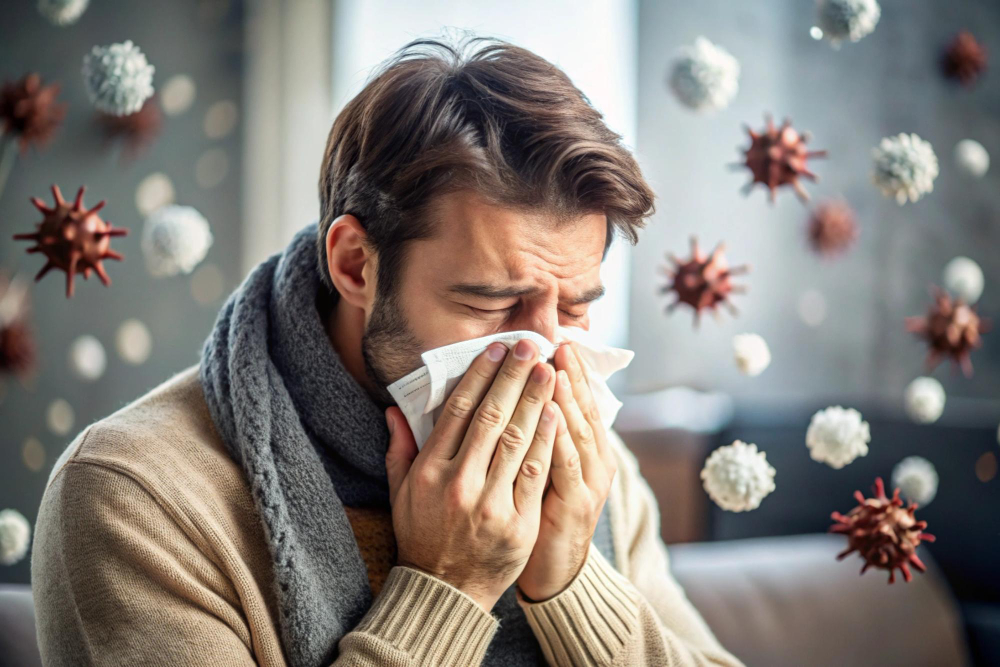What is Influenza (Flu)?
Influenza, often called the flu, is a common viral infection. It affects your nose, throat, and sometimes your lungs. Influenza prevention is important because the flu can spread quickly, especially in crowded places. According to the CDC, millions get the flu each year. While most people recover, some can get very sick.
Symptoms of Influenza
Flu symptoms usually start suddenly. They can range from mild to severe. For example, you may notice:
However, not everyone with the flu will have a fever.
How Influenza Spreads
Influenza spreads mainly through droplets when someone coughs, sneezes, or talks. These droplets can land in the mouths or noses of people nearby. Sometimes, you can get the flu by touching a surface with the virus and then touching your face. Because the flu spreads easily, knowing how to avoid the flu is key.
Importance of Influenza Vaccines
Getting a flu vaccine each year is the best way to lower your risk. Vaccines help your body build protection against the virus. According to the World Health Organization, flu vaccines prevent millions of illnesses and doctor visits every year. In addition, vaccines protect those around you, especially people who are at higher risk.
Types of Flu Vaccines
There are different types of flu vaccines. Your doctor can help you choose the best one. Common types include:
Each year, vaccines are updated to match the most common flu viruses.
Everyday Tips to Prevent Influenza
Besides vaccines, you can take simple steps to avoid the flu. For example, try these flu prevention tips:
In crowded cities, these steps are even more important. Also, wearing a mask in public places can help reduce your risk.
Who Should Get Vaccinated?
Almost everyone over six months old should get a flu vaccine each year. However, it is especially important for:
Getting vaccinated helps protect you and those around you.
Common Myths About Flu Prevention
There are many myths about flu prevention. Let’s clear up a few:
When to See a Doctor
If you have trouble breathing, chest pain, or a high fever that will not go away, see a doctor right away. Also, if you are at higher risk for flu complications, seek help early. Early treatment can help prevent serious problems.
Reliable Resources
For more information on influenza prevention, visit these trusted sources:
For personalized influenza prevention advice, consult your healthcare provider.

